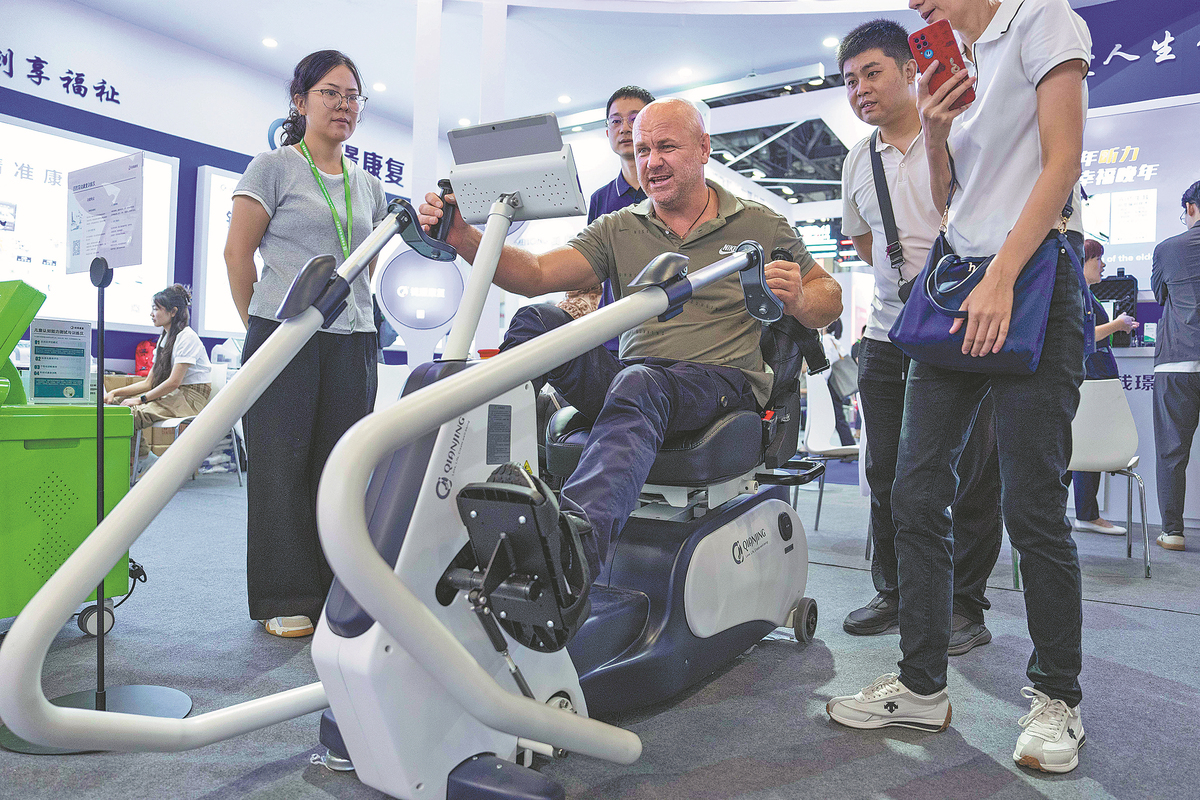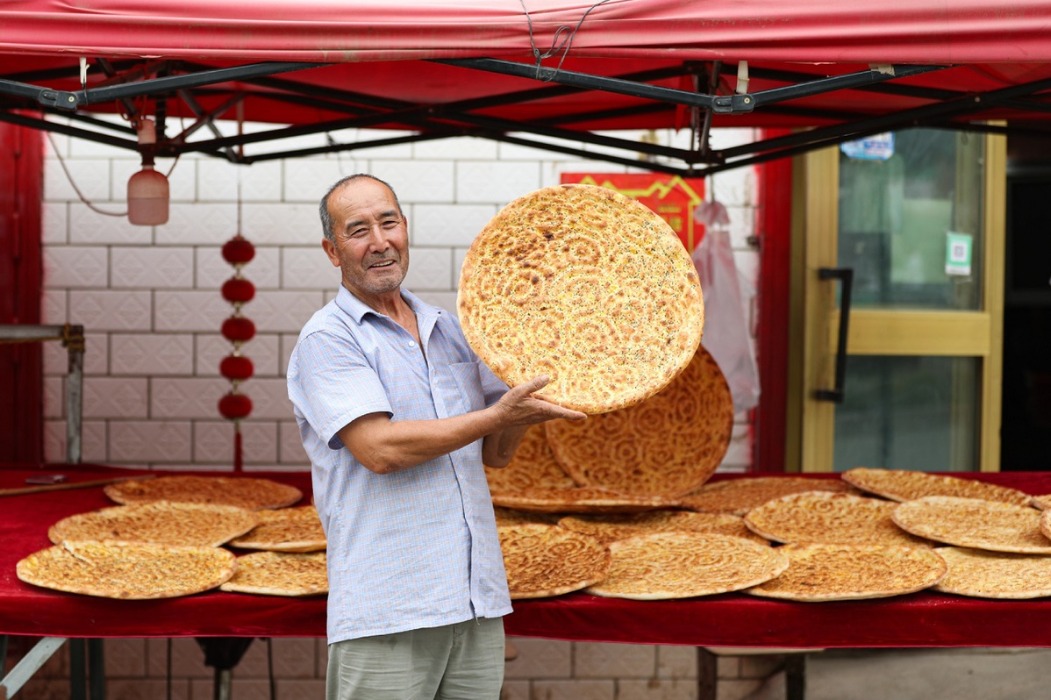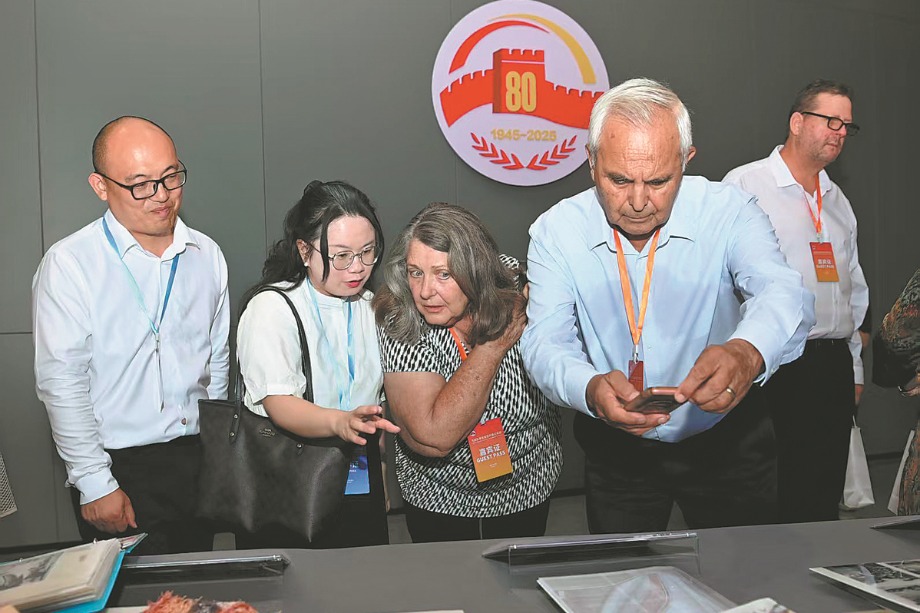China uses tech to aid elderly, disabled
Beijing expo showcases AI, smart devices that are boosting people's lives


China's development and introduction of advanced assistive devices has greatly benefited the elderly and people with disabilities, earning praise from officials representing international organizations.
The Care & Rehabilitation Expo China 2025, organized by the China Disabled Persons' Federation, opened on Friday in Beijing and was in full swing throughout the weekend.
The three-day event featured a wide range of assistive devices, including prostheses, barrier-free vehicles and eyeglasses for the visually impaired. Many of the products combine practical functions with futuristic elements by applying cutting-edge technologies such as artificial intelligence and brain-computer interfaces.
The expo is the 18th of its kind to be held since 2007. The federation said this year's event attracted more than 430 companies and organizations from China and abroad.
Jiang Honghai, a 50-year-old who lost his left lower leg in an accident 30 years ago, said his life has greatly improved since he began using a smart prosthesis from Ottobock, a German medtech company, eight years ago.
"My previous prosthesis was not that comfortable, and I couldn't walk for a long time or go upstairs and downstairs with it. I was in a deep depression and refused to engage in any social life at the time," he said. "The prosthesis I now use allows me to walk, climb mountains and go cycling. It's already a part of my body."
Wang Lei, corporate and external affairs director at Ottobock's China office, said the company established its presence in China in 1993 and has participated in all 18 editions of the expo.
"The company has invested increasing resources to develop products suitable for Chinese people. We believe assistive devices can not only help people with disabilities move or walk but also enable them to return to family life and work, and to create personal value in society," she said.
Shanghai-based Boin Hearing Technology Co showcased its latest self-developed Bluetooth headphones and a bone conduction hearing aid at the expo, with the latter offering safer, more comfortable and effective solutions for people with sensorineural hearing loss — often caused by damage to the inner ear.
"It's estimated that China has 220 million people with hearing loss, which has a severe negative effect on their communication abilities, physical health and mental well-being. Hearing is a right everyone is entitled to, and we see hearing aids not just as devices but as bridges connecting people to the world of sound," said Jiang Xianquan, president and CEO of Boin.
Jiang said the company has focused on self-developed technologies and innovation since its founding in 2019.
"It's necessary to prioritize research and development, lower costs, optimize manufacturing processes and diversify products to allow more Chinese people access to affordable, high-quality hearing aids," he said.
Jose Maria Viera, executive director of the International Disability Alliance, said his experience at the expo was "incredible" and that it was encouraging to note how technology is improving lives.
"I'm impressed by mobility aids, assistive technology and AI that allow people with disabilities to live more independently," he said, adding that he believes China is in a privileged position to connect disabled people with technology, and that the experiences China has accumulated can help support people with disabilities globally.
- China uses tech to aid elderly, disabled
- Chief executive says 8th Legislative Assembly election of Macao SAR successfully held
- 26 elected as new legislators of Macao SAR: preliminary results
- Solar project helps the sun shine on Huzhu's economy
- Permanent exhibition in Liuzhou city honors role of Flying Tigers
- Organic farming transforms poor village's fortunes





































